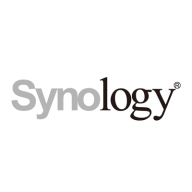

Teradata and Synology DSM are solutions in the data management and storage categories, respectively. Teradata appears to have an upper hand in performance and scalability, while Synology DSM is advantageous in budget-friendly offerings for small to medium-sized organizations.
Features: Teradata stands out with its massively parallel processing capabilities, scalability, and advanced workload management. Its adaptability with large data environments provides businesses with comprehensive insights. Synology DSM is known for its ease of use, versatility in serving as a storage server, and the ability to customize for various applications such as backups.
Room for Improvement: Teradata could improve on cost efficiency, enhance its OLTP capabilities, and increase focus on cloud adoption. Synology DSM could enhance security threat detection and improve backup support across configurations. Both products have areas for technological enhancements.
Ease of Deployment and Customer Service: Teradata offers flexible deployments across on-premises, public, and hybrid clouds, though it may result in higher complexity. Customers generally review its technical support positively but note that faster response times could be beneficial. Synology DSM is praised for straightforward on-premises deployment and ease of use, though more guidance for complex configurations would enhance user experiences.
Pricing and ROI: Teradata is an expensive investment but offers a strong ROI for large enterprises needing data processing and analytics. Synology DSM provides a more budget-friendly option with good value for smaller organizations, despite potentially higher hardware costs.
| Product | Market Share (%) |
|---|---|
| Teradata | 0.5% |
| Synology DSM | 1.4% |
| Other | 98.1% |


| Company Size | Count |
|---|---|
| Small Business | 8 |
| Midsize Enterprise | 4 |
| Large Enterprise | 1 |
| Company Size | Count |
|---|---|
| Small Business | 28 |
| Midsize Enterprise | 13 |
| Large Enterprise | 52 |
Teradata is a powerful tool for handling substantial data volumes with its parallel processing architecture, supporting both cloud and on-premise environments efficiently. It offers impressive capabilities for fast query processing, data integration, and real-time reporting, making it suitable for diverse industrial applications.
Known for its robust parallel processing capabilities, Teradata effectively manages large datasets and provides adaptable deployment across cloud and on-premise setups. It enhances performance and scalability with features like advanced query tuning, workload management, and strong security. Users appreciate its ease of use and automation features which support real-time data reporting. The optimizer and intelligent partitioning help improve query speed and efficiency, while multi-temperature data management optimizes data handling.
What are the key features of Teradata?
What benefits and ROI do users look for?
In the finance, retail, and government sectors, Teradata is employed for data warehousing, business intelligence, and analytical processing. It handles vast datasets for activities like customer behavior modeling and enterprise data integration. Supporting efficient reporting and analytics, Teradata enhances data storage and processing, whether deployed on-premise or on cloud platforms.
We monitor all Backup and Recovery reviews to prevent fraudulent reviews and keep review quality high. We do not post reviews by company employees or direct competitors. We validate each review for authenticity via cross-reference with LinkedIn, and personal follow-up with the reviewer when necessary.